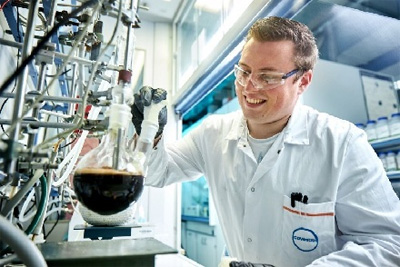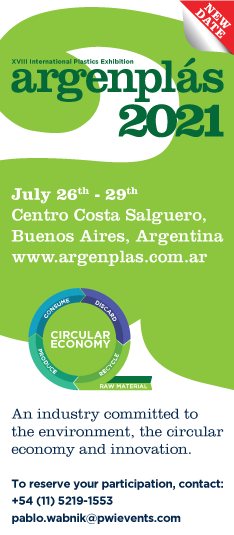| Plastics News |
Covestro develops process for Chemical Recycling of PU flexible foam from used mattresses
March, 25, 2021 - Covestro has developed an innovative process for the chemical recycling of polyurethane (PU) flexible foam from used mattresses. It builds on its participation in the PUReSmart project, which is coordinated by Recticel company. On average, mattresses contain 15 to 20 kilograms of foam, which results in a large amount of waste at the end of their useful life. The foam is primarily made of two important raw materials. While other chemical recycling approaches mainly focus on processing one of them, the Covestro process now enables the recovery of both raw materials. Covestro has also recently started operating a pilot plant for flexible foam recycling at its Leverkusen site to confirm the positive laboratory results achieved to date. The first phase is to focus on recycling one of the raw materials, before the recovery of the second component is also to be piloted from summer this year. Covestro´s goal here is to industrialize chemical recycling processes for used flexible foams and ultimately to remarket both recovered raw materials. Closing material loops "The development of this innovative recycling technology and the investment in the pilot plant are further milestones in realizing our vision of fully aligning Covestro to the circular economy," says CEO Dr. Markus Steilemann. "In doing so, we want to replace fossil resources in production, steadily further reduce the carbon footprint of our materials and create new solutions for dealing with plastic waste. Chemical recycling is particularly promising for this, and must be developed further and used more intensively overall. Above all, it should finally be put on an equal legal basis with other recycling methods." In cooperation with the companies Recticel and Redwave – a division of Wolfgang Binder GmbH – and as part of the PUReSmart research project, Covestro has also developed an intelligent sorting solution for separating the different PU foams from post-consumer mattresses. The software uses algorithms to correctly identify the different foam types, which facilitates an effective recycling process. This development is another element of Covestro’s digitalization strategy, combined with the new opportunities it entails for the chemicals and plastics industry. Co-creation of a circular ecosystem "Based on our competencies and experiences, we also want to take part in shaping the emerging value creation cycle," says Daniel Meyer, Global Head of the Polyurethanes segment at Covestro. "To accomplish this, we rely on international cooperation with partners and also develop innovative business models. The aim is to generate new sustainable business opportunities with our customers, other partners and for ourselves." The project is an important step forward in taking the development of the circular economy at Covestro to entirely new heights. The increased use of used materials further contributes to solving the societal challenge of sustainable disposal of such waste and to achieving the European Union´s goals for the circular economy and for climate and environmental protection. With 2020 sales of EUR 10.7 billion, Covestro is among the world’s leading polymer companies. Business activities are focused on the manufacture of high-tech polymer materials and the development of solutions for products used in many areas of daily life. In doing so, Covestro is committed to the circular economy. The main industries served are the automotive and transportation industries, construction, furniture and wood processing, as well as electrical, electronics, and household appliances industries. Other sectors include sports and leisure, cosmetics, health and the chemical industry itself. At the end of 2020, Covestro has 33 production sites worldwide and employs approximately 16,500 people (calculated as full-time equivalents). Source: Covestro |


